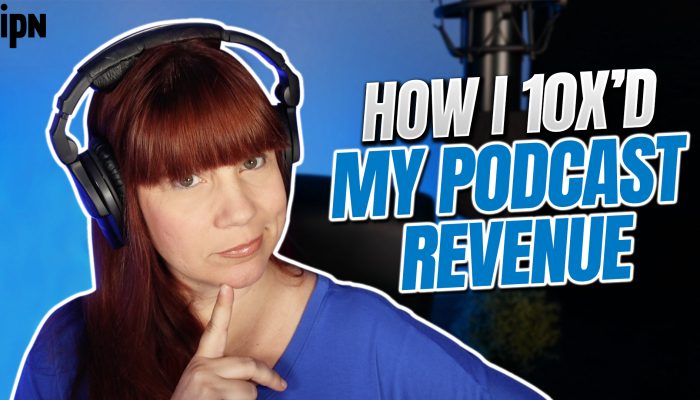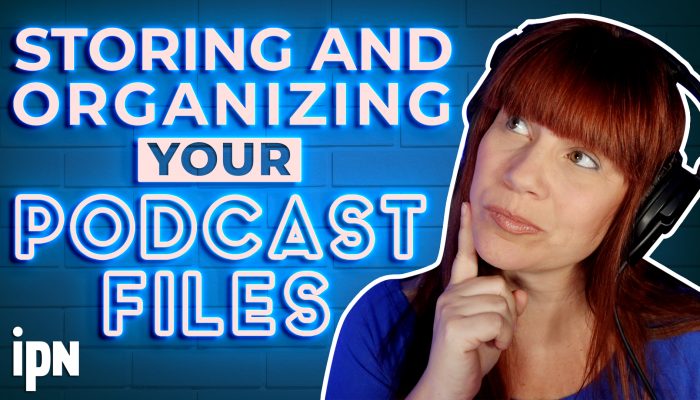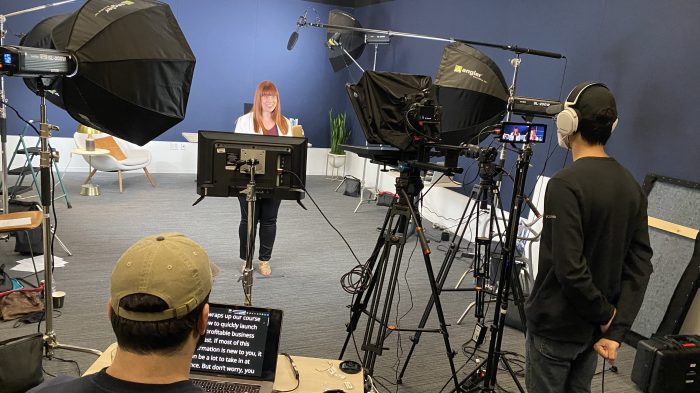
Starting a podcast can be a rewarding and fulfilling hobby, but it can also be overwhelming to figure out what to talk about. One key to a successful podcast involves finding a niche that audiences find interesting and remains in-demand by listeners. So, in this article, we provide seven steps for finding the perfect niche for your podcast.
Whether you’re just starting or looking to pivot to a new topic, these steps will help you identify and refine your focus. So if you’re ready to find your niche and start producing engaging content, read on!
Step #1: Brainstorm Topics
To brainstorm topic ideas for a podcast, you can start by thinking about your own hobbies, interests, and areas of expertise. These all offer potential sources of inspiration for podcast topics. You might also consider the problems or questions that you or others in your community face on a regular basis and see how you can provide solutions or insights through your podcast.
Another option involves looking at current events and trending topics to see if you can tie these into your podcast theme or format. Additionally, you can try looking for gaps in the market and see if there is a topic that is not well covered by other podcasts in your niche. This could be an opportunity to fill a need and differentiate your podcast from the competition.
Step #2: Define a Target Audience
Defining a target audience for your podcast can help you narrow down your list of brainstormed niches. Here are some steps you can follow to define your target audience:
- Consider the demographics of your ideal listener. This might include factors such as age, gender, location, education level, and income.
- Think about the interests and needs of your ideal listener. What topics are they interested in? What problems or challenges are they facing that your podcast could help address?
- Consider the format and style of your podcast. Is it a casual conversation, a deep dive into a specific topic, or something else entirely? Who is most likely to enjoy this style of content?
Once you define your target audience, look at your list of brainstormed niches and cross-out ones that do not fit your audience. You can also come up with more ideas based on your target audience.

Step #3: Research Your Competition
Researching the competition can help choose a niche you can compete in based on your skills and current following. You can follow the steps outlined below to research the competition for any of your niche ideas:
- Make a list of the podcasts that cover topics similar to your ideas. You can use a podcast directory or search engine to find these.
- Consider the format, content, and target audience of these podcasts. How do they compare to your own ideas?
- Look at the reviews and ratings of these podcasts. What do listeners like and dislike about them?
- Check out the social media presence and website of these podcasts. How do they engage with their audience and promote their content?
- Think about how you can differentiate your podcast from the competition. Is there a unique angle or perspective you can bring to the topic? Can you offer a different format or style of content?
- Consider the demand for the topic. Are there many podcasts in this niche, or is there room for another show? Is there a strong online community of people interested in this topic?
By researching the competition, you can get a better understanding of the current state of the market and how your ideas fit in.
Step #4: Identify the Demand for Your Niche Ideas
To determine the potential demand for a specific niche, one of the first things you should do is research online communities related to the topic. Are there forums, Facebook groups, or other online platforms where people are discussing this topic? If so, this can be a good sign that there is demand for content on this topic.
You can also use keyword research tools to see how many people are searching for terms related to the niche. This can give you an idea of the level of interest in the topic. By taking the time to research these factors, you can get a sense of whether or not there is a demand for content in this niche.
Step #5: Evaluate the Potential for Monetization of Your Niche Ideas
You can determine the potential for monetization of a podcast niche by assessing these four factors:
- Audience size: The larger the audience for your podcast, the more potential you have for monetization. Consider the demand for your chosen niche and how many people are likely to be interested in your content.
- Advertiser interest: Some niches may be more attractive to advertisers than others. Consider whether there are companies or brands that would be interested in sponsoring or advertising on your podcast.
- Product or service alignment: If you have a product or service related to your podcast niche, you may be able to monetize your show through sales. Consider whether there is a market for the product or service you offer and how it aligns with your podcast content.
- Sponsorship opportunities: In addition to advertising, you may be able to secure sponsorships for your podcast. This can be especially viable if you have a large and engaged audience.
Step #6: Test Your Top Choice
One way to test a podcast niche is to create a few episodes on the topic and see how they are received. You can publish these episodes on your podcast platform and track metrics such as download numbers and listener engagement.
You can also ask for feedback from your listeners and see how they respond to your content. This can give you a better sense of whether or not your chosen niche is a good fit and whether there is demand for your content. It’s important to keep in mind that it can take time for a podcast to grow and for you to build up an audience, so stay patient and keep testing and refining your content as needed.
Once you start testing your niche ideas, it’s only a matter of time until you find the perfect fit for your expertise!









